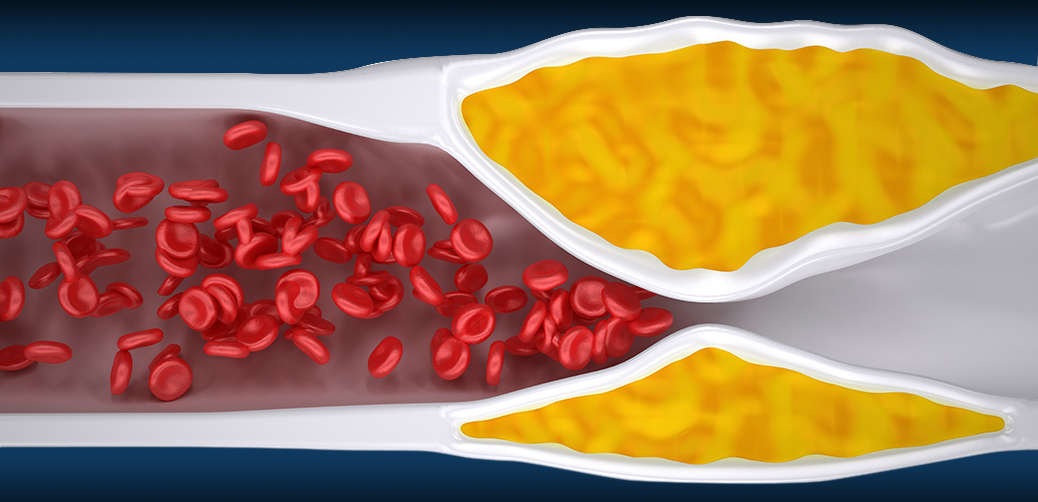What is hardening of the arteries or atherosclerosis?
Posted by Dr. Robert Kelly
6March
Hardening of the arteries or atherosclerosis is due to fatty infiltration of white blood cells and cholesterol caused by chronic inflammation in artery walls. It is promoted by cholesterol particles in blood. Over time the artery may become calcified.
Plaque in the arteries to the heart leads to heart attacks. This plaque is caused by age, smoking, diabetes, cholesterol, poor diet, family history and high blood pressure. In some cases the causes for plaque are not known.
Plaque may build up in arteries anywhere in the human body: in the heart arteries that can lead to heart attacks; in the neck arteries that can lead to strokes and in the arteries in tummy and legs it can lead to aneurysms and problems with circulation in legs.
Prevention and treatment of atherosclerosis
To prevent plaque formation it is important to be healthy by not smoking, walking/ exercising regularly; taking care what you eat and getting checked out by your doctor for blood pressure, blood sugar, cholesterol and any other medical conditions. As this is something that can start at a young age it is important that children grow up with regular exercise, playing outdoors, eating less sugar, sweets and fast food, and being aware of why healthy choices are so important for all of life.
Signs and symptoms: When to seek medical advice
If there is a family history of heart disease (especially early in life 40-60 age group) then one should take steps to get checked out early on in life in order to prevent risks of heart disease but also because early detection can better define and manage risk, compared with doing nothing and going on to have a heart attack which may be fatal!
So if people have chest pain, shortness of breath, palpitations, unexplained fatigue, cramps in legs with walking, blurred vision, then a visit to doctor to discuss these symptoms is very important.
Tests for hardening of the arteries
The doctor will check blood pressure, pulse; may do a recording of heart rhythm (ECG) and may do blood tests (cholesterol, blood sugar). If doctor is concerned that heart plaque could be a problem they may start aspirin, cholesterol drugs (statins) and or tablets for any symptoms. They will likely refer the person for specialised tests, like an exercise stress test ; an ultrasound of heart (echo) to see if heart is pumping ok and usually they will refer person to a Cardiologist who will advise what to do.
Atherosclerosis Treatment
Plaque in arteries can often be managed with tablets / diet and exercise. It is critical to stop smoking.
If a patient’s stress test is abnormal an angiogram test (invasive X-ray that inject dye to look at arteries) will be advised. If moderate or severe plaque is found then stenting to unplug the artery or even surgery (CABG – coronary artery bypass) will be advised. In all cases of plaque, aspirin and cholesterol tablets will usually be advised.
It is not uncommon for certain patients (often women) to have symptoms, abnormal stress tests and then normal angiograms. This might be because the pain is due to something else or in other cases spasm of arteries can cause pain without leading to plaque build up.
It is possible for individuals to see if they have plaque by having a non-invasive angiogram test using CT (CT coronary angio gram). One can also get a calcium score test done which does not require any dye injection and counts the amount of plaque on the outside of the artery. A score above 400 is associated with a higher risk of developing heart attack. In younger patients it is possible to have a score of zero and still go on to have a heart attack. This is because soft plaque can build up inside arteries without any calcification. So it is important to remember this in patients usually under 50 who undergo calcium scores. The CT coronary angiogram can see hard and soft plaque so it is more accurate.
If someone has plaque build up, then assessing risk factors and symptoms can help to determine what should be done, namely more tests, stents, surgery, tablets, etc.
CT scans are accessible in most hospitals in Ireland. The cardiac scan ranges in cost from Euro 300 upward. If the scan is being done to assess risk in absence of symptoms most health insurance companies will not pay for the test.
